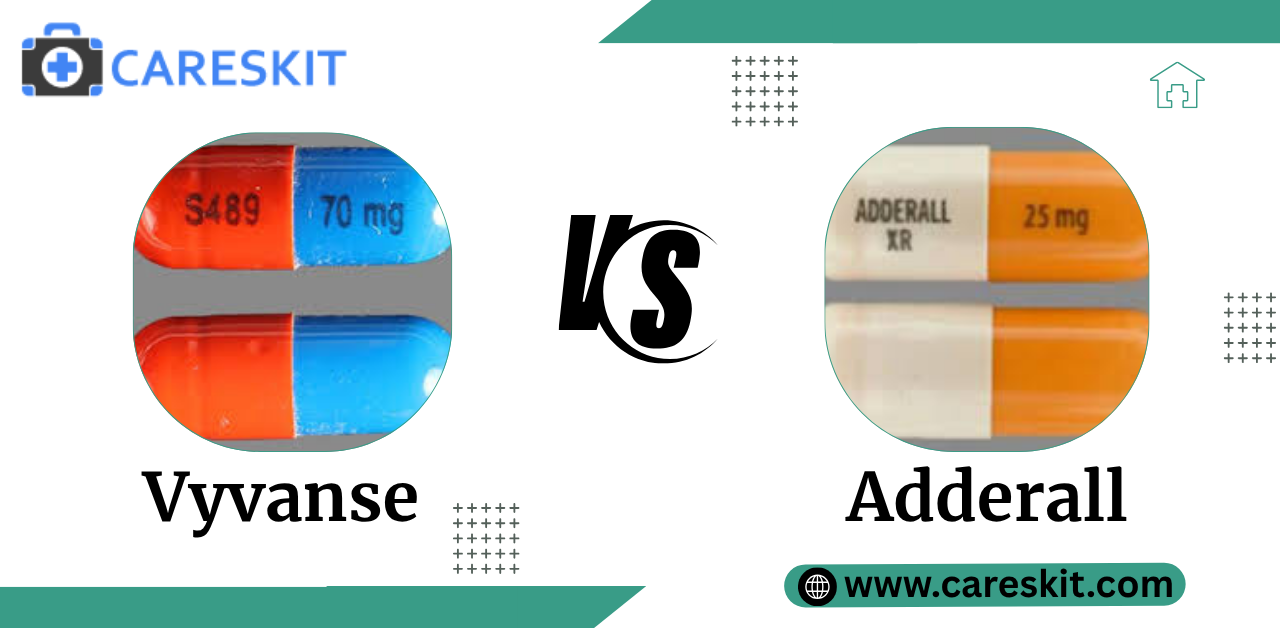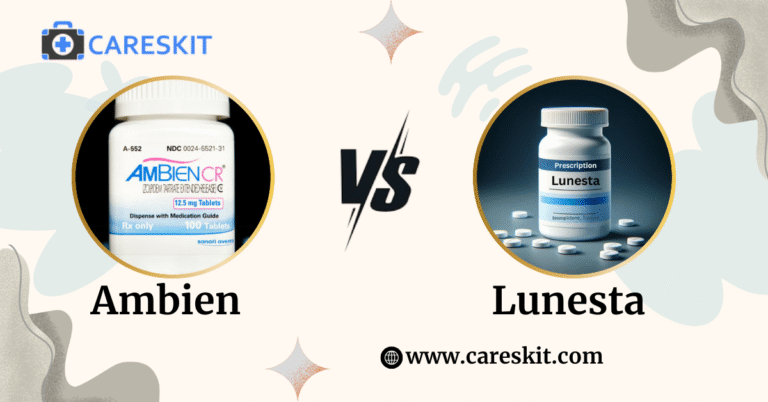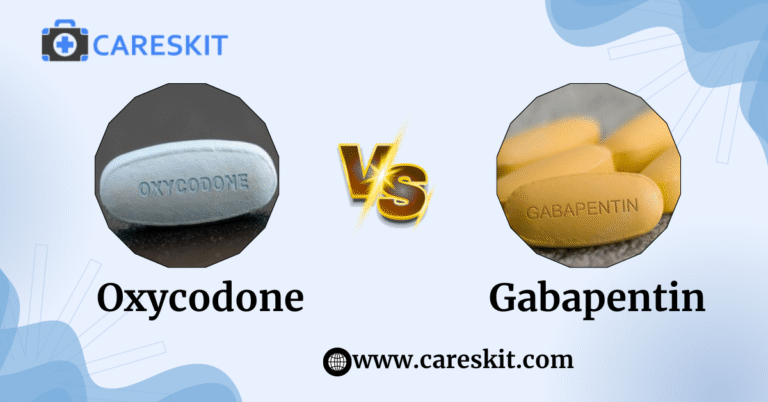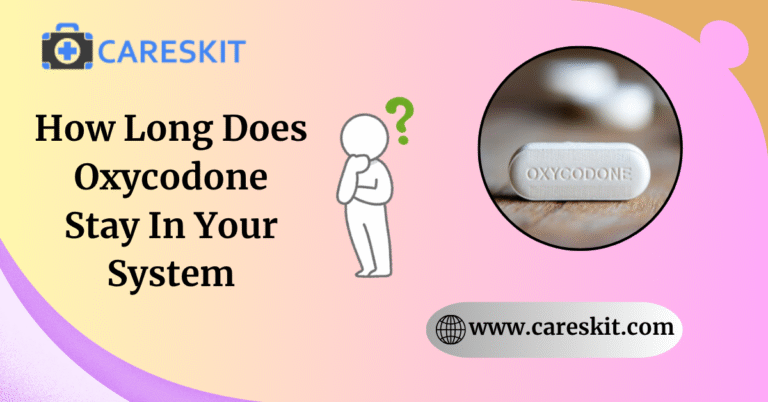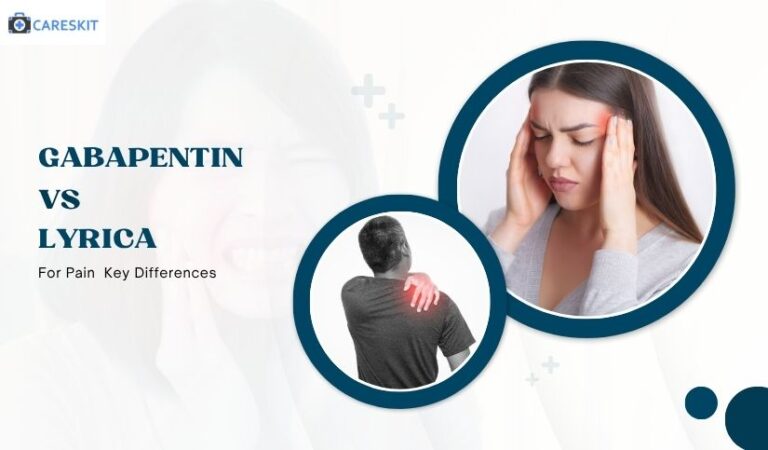Vyvanse vs Adderall: Which ADHD Medication Is Right for You?
When you are exploring treatment for the Attention-Deficit/Hyperactivity Disorder (ADHD) in both adolescents and adults, then Vyvanse and Adderall are the two stimulant medications that are highly effective to manage symptoms like hyperactivity, impulsivity, and irritability. Both drugs are classified as Schedule II controlled substances but knowing how they differ and which one is superior choice for patients will depend on how often they’re used, how their actions are metabolized, and their dosages.
In the blog, we will cover everything that you should understand about Vyvanse vs Adderall, including their dosage, mechanism of action, difference between Vyvanse and Adderall, side effects, and its chemical structure.
Understanding Vyvanse and Adderall
Understanding Adderall and Vyvanse, two powerful drugs commonly used to treat ADHD and sometimes narcolepsy, it is crucial to understand all these things before you start any stimulant medications or make informed decisions for your better health.
What is Vyvanse?
Vyvanse is also known as lisdexamfetamine dimesylate is a CNS stimulant medication used to treat ADHD. It starts their work by increasing the level of brain chemicals to enhance pain. This drug is available as a capsule and a chewable tablet form and is usually taken once a day in the morning. The effects of Vyvanse lasts longer as compared to Adderall and feel smoother throughout the day. Most of the doctors prescribed it for the treatment of binge eating disorder in adults.
What is Adderall?
Adderall is also called an anticonvulsant drug commonly used to treat ADHD and narcolepsy. It contains two active ingredients known as amphetamine and dextroamphetamine that are present in the brain to help to stay focused, alert, and manage impulse control. Most of the doctors prescribed it for both kids and adults to help them to stay organized and make it easier to stay on task. It comes in both IR (produce a quick relief) and ER (provide sustained relief throughout the day) formulations.
Alternatives
In addition to Adderall and Vyvanse both are stimulant medications commonly prescribed for ADHD and sometimes narcolepsy. Both drugs are highly effective to reduce ADHD but sometimes provide potential side effects. So most of the doctors prescribed alternatives to work faster and produce pleasant relief. Some alternatives are:
Differences
Differences between Adderall and Vyvanse is important to understand for both patients and doctors for the treatment of ADHD. Vyvanse (lisdexamfetamine) is a prodrug that requires some time to be metabolized by your body before it is effective, and therefore, the release of the drug via Vyvanse is a slow onset and slow release. Adderall is a combination of four different amphetamine salts and comes in an IR and XR formulation. Some notable differences are summarized below:
- Mechanism of Action: Vyvanse start their work by increasing the level of brain chemicals quickly to metabolize in the body, but Adderall takes longer time to metabolize in the body.
- Misuse Potential: Vyvanse taken orally and digested easily due to its prodrug design to produce less potential for misuse where Adderall IR is more likely to abuse due to its rapid-acting profile.
- Onset and Duration: Vyvanse has a slower onset up to 1 to 2 hours to provide smoother effects and lasts longer up to 14 hours where Adderall onset is 30 to 60 minutes longer lasting effect up to 10 to 12 hours.
- Side Effects: Both medications are highly effective to treat ADHD and can cause some common and serious side effects like insomnia and anxiety.
Vyvanse vs Adderall Dosage
Comparing the dosage of Adderall and Vyvanse based on milligram to milligram is simple to know its higher effectiveness and potential for misuse. Vyvanse is a prodrug which becomes active only after being metabolized into dextroamphetamine, while Adderall is an immediate mixture of amphetamine salts . General Vyvanse to Adderall dosage conversion guide is listed below:
- 30 mg Vyvanse ≈ 10 mg Adderall IR taken twice daily
- 50 mg Vyvanse ≈ 20 mg to 25 mg Adderall IR per day
- 70 mg Vyvanse (max dose) ≈ 30 mg Adderall XR daily
Side Effects
When it comes to managing ADHD, both Vyvanse and Adderall share many of the same side effects. Due to the difference in how they’re used to produce relief. Some people may tolerate one better than the other.
Common Side Effects (Shared by Both Medications) are listed below:
- Insomnia
- Loss of appetite
- Dry mouth
- Increased heart rate
- Anxiety
- Irritability
- Headache
- Nausea
- Weight loss
Serious Side Effects are listed below:
- Chest pain
- Severe mood changes
- Signs of circulation problems
- Risk of heart attack
Drug Interactions
Adderall and Vyvanse are both known amphetamine stimulants and produce very similar drug interactions profiles in some individuals. Before using any stimulant drugs with other sedative products first discuss your healthcare provider for choosing appropriate medications. Some major drug interaction substances are:
- MAOIs
- Other Stimulants like Phentermine
- Acidifying
- Alcohol
- Antipsychotics
FAQs
Which is better, Vyvanse or Adderall?
It depends on the individual needs, medical history, and response to either Adderall or Vyvanse as to which medication is “better”. Vyvanse is better for short-term treatment and Adderall is better for long-term treatment but which is better is decided by your healthcare provider according to your health conditions.
Can you use Vyvanse and Adderall together?
Taking both medications on the same day or together is not indicated unless directed by a medical provider. Both medications are CNS stimulant medications, which can have adverse effects that can become serious if taken together.
Conclusion
Adderall and Vyvanse are two powerful drugs prescribed for the treatment of ADHD and sometimes narcolepsy. Both medications provide potential effects but they work differently to relieving symptoms. Always consult a good or certified healthcare provider before taking these medications and discuss which medication is appropriate for your health conditions.

